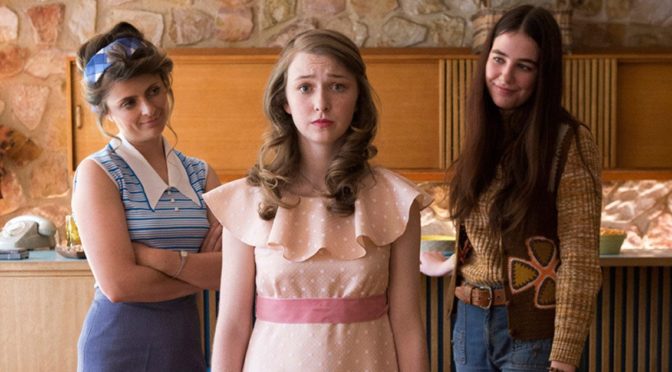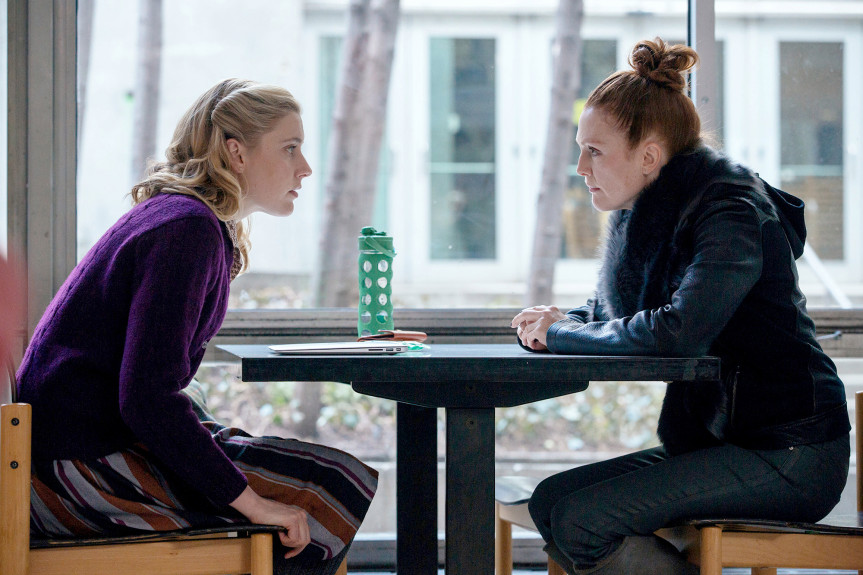Part satire, part surreal adventure, Girl Asleep is an incredibly original and entertaining feature. The film trades in lots of deadpan humor and the main cast is immediately endearing. Greta (Bethany Whitmore; Mary and Max) is an adorable misfit with her shy demeanor in stark contrast to her relatives. Greta’s family is well developed but the only thing louder than them is the eye-popping 70s color palate. The movie is set designed like a Wes Anderson film with a dollhouse structure but featuring a bright, fun energy. Even the intertitles are creatively inserted. Picture the staging of The Grand Budapest Hotel combined with the energy and aesthetic of Boogie Nights. The entire first half of the film exudes this spirit even though the main character is a self-conscious teenager.
Director Rosemary Myers captures the awkwardness of adolescence. Greta is hypersensitive to how she is perceived and freaks out at the thought of a party thrown for her with all her classmates invited. She’s not ready for all that entails. She doesn’t want to wear a fancy dress, wear makeup, or do her hair. Her mom on the other hand convinces her to go along with the idea.
The party itself is buzzing with energy. Greta’s schoolmates don’t just show up for the party, they make an entrance. Every person saunters and dances into the house like groomsmen or bridesmaids at a wedding reception. These entrances turn into impromptu synchronized dance numbers that are nothing short of exuberant. It isn’t until the “Plastics” (they’re not actually called that but they are basically the plastics from Mean Girls) show up with a humiliating song written just for Greta that things take a turn for the worse. She retreats to her room and gets shocked while opening up her old music box. This is where things start getting weird.

In the second half, Girl Asleep becomes a David Lynch film. Like Naomi Watts opening the blue box in Mulholland Drive, Greta enters into a dream world where all the horrors of her imagination live. A strange creature takes her music box into the mysterious woods behind her house and as Greta follows she finds herself pursued by a variety of monsters. Each represents a piece of her current life and is played by one of the existing cast members. Her dad plays a disgusting freak that wants to make fart jokes and the Mean girls are feral animals chasing her.
Myers uses this surreal escapade to explore Greta’s inner feelings. Despite the extreme tonal shift, the second half feels natural. Each of the beings she meets in this alternate reality is a manifestation of her current situation. The monsters, like their real-life counterparts, pose a risk to Greta’s life as she knows it. This is a coming of age story and each one represents the societal and parental pressures Greta faces as well as the remnants of childhood she still holds on to. As she deals with these creatures, Greta learns what is important to her and what type of person she wants to be. Girl Asleep uses deadpan humor and surreal explorations of inner conflicts to create a strange, unpredictable, and, at times, unnerving examination of one girl’s transition to womanhood.

4/5 stars.


